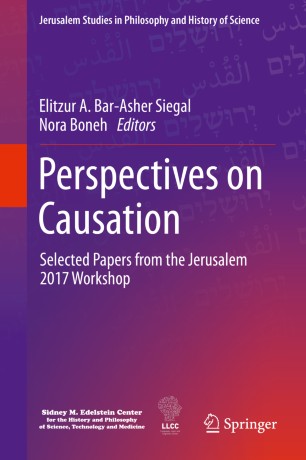

Most ebook files are in PDF format, so you can easily read them using various software such as Foxit Reader or directly on the Google Chrome browser.
Some ebook files are released by publishers in other formats such as .awz, .mobi, .epub, .fb2, etc. You may need to install specific software to read these formats on mobile/PC, such as Calibre.
Please read the tutorial at this link. https://ebooknice.com/page/post?id=faq
We offer FREE conversion to the popular formats you request; however, this may take some time. Therefore, right after payment, please email us, and we will try to provide the service as quickly as possible.
For some exceptional file formats or broken links (if any), please refrain from opening any disputes. Instead, email us first, and we will try to assist within a maximum of 6 hours.
EbookNice Team

Status:
Available4.6
26 reviewsThis book explores relationships and maps out intersections between discussions on causation in three scientific disciplines: linguistics, philosophy, and psychology. The book is organized in five thematic parts, investigating connections between philosophical and linguistic studies of causation; presenting novel methodologies for studying the representation of causation; tackling central issues in syntactic and semantic representation of causal relations; and introducing recent advances in philosophical thinking on causation.
Beyond its thematic organization, readers will find several recurring topics throughout this book, such as the attempt to reduce causality to other non-causal terms; causal pluralism vs. one all-encompassing account for causation; causal relations pertaining to the mental as opposed to the physical realm, and more. This collection also lays the foundation for questioning whether it is possible to evaluate available philosophical approaches to causation against the variety of linguistic phenomena ranging across diverse lexical and grammatical items, such as bound morphemes, prepositions, connectives, and verbs. Above all, it lays the groundwork for considering whether the fruits of the psychological-cognitive study of the perception of causal relations may contribute to linguistic and philosophical studies, and whether insights from linguistics can benefit the other two disciplines.